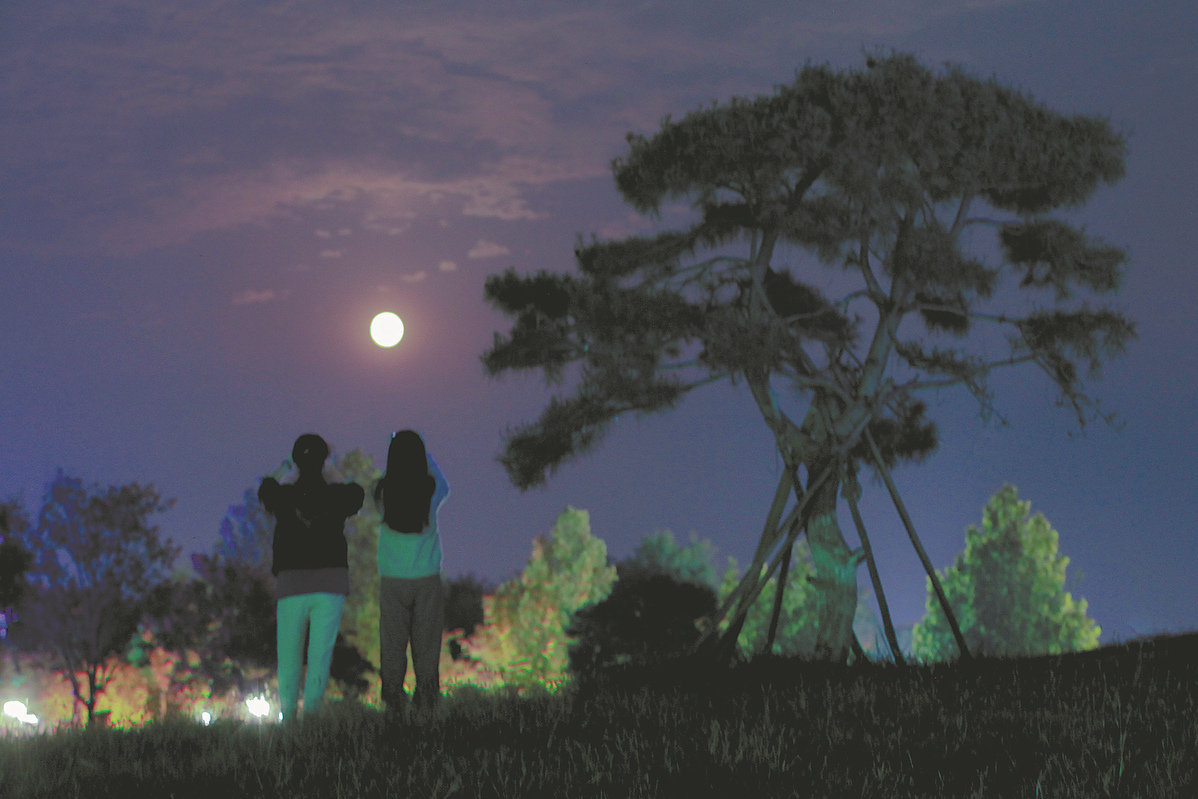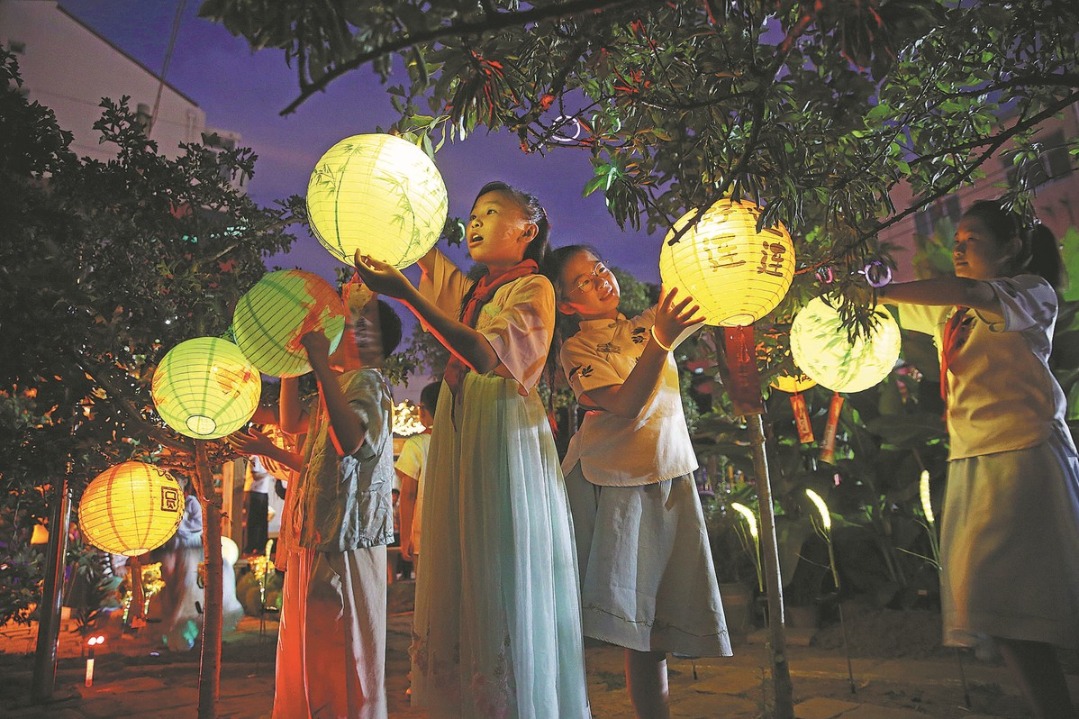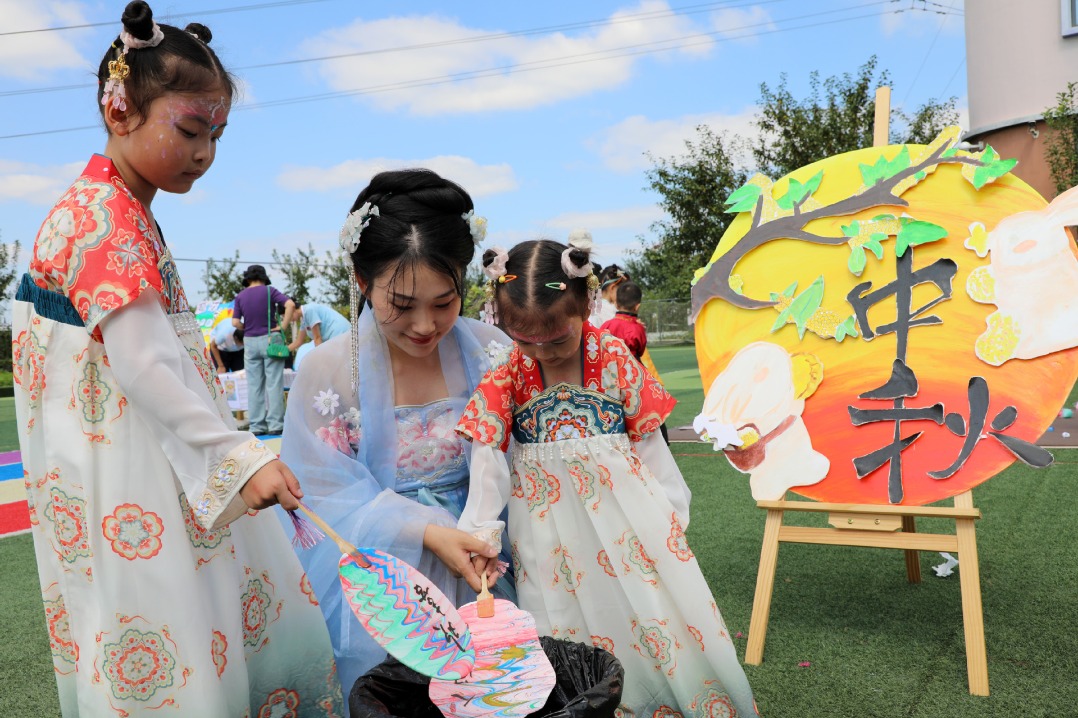A festival where the moon plays a shining role
Poetry has given the lunar light a special romantic and emotional significance


Autumn is a season for harvest and decay alike. Autumn is a season of varied colors: flaming maple leaves, amber persimmons, golden sweet-scented osmanthus and straw rolls in the field. Autumn is a season for the sounds of falling leaves, cracks of pomegranates and songs of migratory birds flying south.
It is in this light that the Mid-Autumn Festival, falling on the 15th day of the eighth lunar month, holds in it both the joy of fruitfulness and lament of things past and the ice-cold winter ahead, and that, no different from many other prominent literary works, it seems ancient poetry could only be told long and wide by revealing the frustrations left in contrast to the completeness of the full moon, and the solitude felt in crowds.
Northern Song Dynasty (960-1127) literati Su Shi (1037-1101) marked the Mid-Autumn Festival in 1076. He was at the time governor of Mizhou, today's Zhucheng city in Shandong province.
Missing his younger brother — by then Su had lost both parents and elder sister and been demoted far from home — he wrote down the household lines about the moon, Prelude to Water Melody, which have been read and sung for almost 1,000 years.























